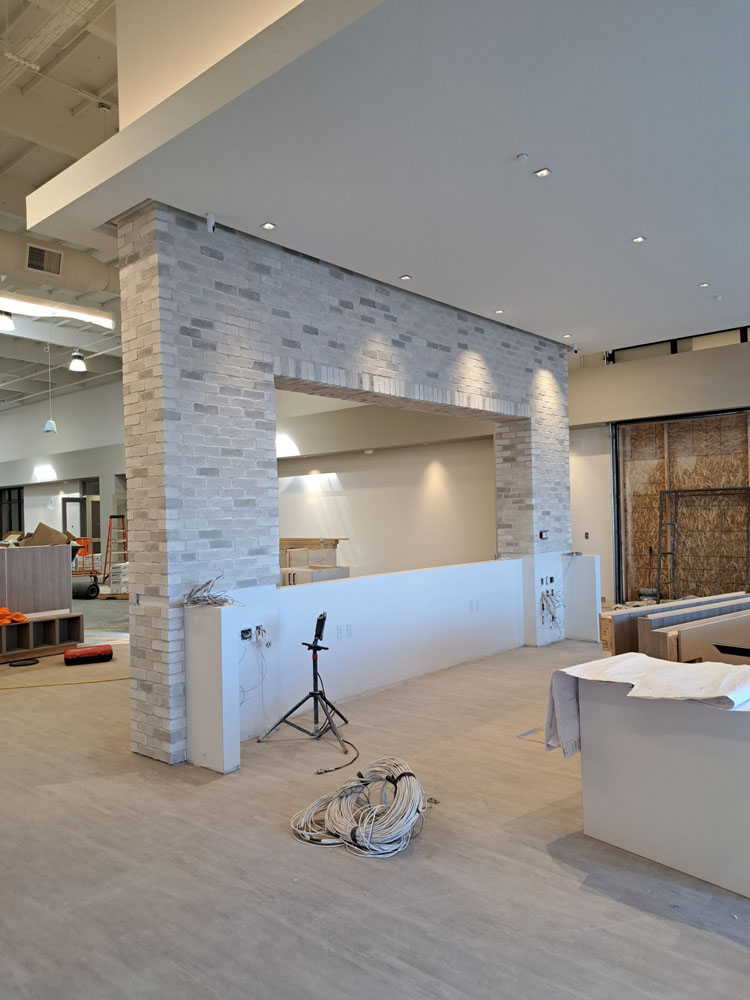Introduction
Masonry work has been an essential part of construction for centuries, providing the structural and aesthetic backbone to many buildings. But who’s behind these intricate creations? Enter the masonry contractor—a skilled professional responsible for bringing stone, brick, and concrete structures to life. In this article, we'll explore The Role of a Masonry Contractor: 5 Key Responsibilities Explained in detail.
Understanding what a masonry contractor does can help homeowners and builders alike appreciate the craftsmanship that goes into every wall, patio, or fireplace. From project management to material selection, let’s dive deep into the responsibilities that define this crucial role in the construction industry.
The Role of a Masonry Contractor
Understanding Masonry Work
Masonry is more than just stacking bricks; it’s an art form and a science combined. A masonry contractor specializes in working with various materials such as:
- Brick Stone Concrete blocks Mortar
These materials require specific techniques and skills to ensure durability and aesthetic appeal. So what exactly does a masonry contractor do? Let’s break it down.
Key Responsibilities of a Masonry Contractor
1. Project Planning
Planning is the cornerstone of any successful construction project—and masonry work is no exception. A masonry contractor must:
- Assess client needs. Create detailed blueprints. Estimate costs accurately.
By taking the time to plan effectively, they set the stage for smooth execution later on.
2. Material Selection
Choosing the right material can make or break a masonry project. A knowledgeable contractor will evaluate factors like:
- Climate conditions Aesthetic preferences Structural requirements
This expertise ensures that clients receive high-quality results tailored to their needs.
3. Site Preparation
Before laying a single brick, site preparation is crucial. This involves:
Clearing debris Ensuring proper drainage Establishing foundational support
A well-prepared site reduces future complications, enabling contractors to work efficiently.
4. Installation Techniques
Masonry installation requires both precision and skill. Contractors must know how to apply various techniques effectively, including:
- Bricklaying patterns Stone cutting Concrete pouring
Moreover, ensuring that these installations comply with local building codes is essential for safety.

5. Maintenance and Repair Services
Even after completing a project, a masonry contractor's job isn't over! They often provide maintenance services that include:
- Inspecting existing structures Identifying wear or damage Offering repair solutions
Regular maintenance keeps structures safe and extends their lifespan.
Detailed Insights into Each Responsibility
1. Project Planning Made Simple
When embarking on a new project, planning is paramount. The first step involves understanding the client's vision—what do they want? Whether it's an elegant stone patio or a robust brick wall, grasping their concept sets everything in motion.
Next comes blueprint creation—this isn’t just doodling on paper! Contractors use software programs to draft precise designs that outline dimensions and materials needed for each section of the project.
Finally, cost estimation plays an important role here too; it’s about creating realistic budgets while factoring in labor costs and unexpected expenses that may arise during construction.
2. Choosing Materials Wisely
Selecting appropriate materials is where artistry meets practicality! A good masonry contractor will consider not just aesthetics but also functionality based on climate conditions (think freezing winters versus sweltering summers).
For instance: | Material | Best Use | |----------|----------| | Brick | Residential walls | | Stone | Patios & walkways | | Concrete | Foundations & heavy-duty structures |
By weighing all these options carefully, contractors ensure clients get long-lasting results!
3. Perfecting Site Preparation Techniques
It might seem tedious but preparing the site properly saves headaches down the line! This process includes digging trenches for foundations or leveling ground surfaces before installing any structure above them.
A well-prepared site helps avoid issues like water pooling around foundations which could lead to significant structural problems later on!
4. Mastering Installation Techniques
Installation might be where things get tricky! Various techniques such as mortar application or brick bonding patterns create stability in structures while enhancing visual appeal too!
For example: Stack bond creates clean lines perfect for modern designs while running bond provides strength ideal for load-bearing walls!
Each method brings its unique flair—knowing when to use what technique is key!
5. Providing Maintenance and Repair Services
After projects are completed successfully comes another critical phase: maintenance! Regular inspections help identify potential problems early before they evolve into costly repairs later on!
Many contractors offer warranties guaranteeing their workmanship—but keeping up with routine checks still falls under their responsibility too!
A proactive approach means happier clients—and peace of mind knowing their investments remain sound over time!
FAQs About Masonry Contractors
Q1: What qualifications should I look for in a masonry contractor?
A1: Look for certifications from recognized institutions, experience in similar projects, and positive customer reviews.
Q2: How do I estimate costs associated with hiring a masonry contractor?
A2: Request quotes from multiple contractors detailing labor charges, materials used, and expected completion timelines.

Q3: Can I perform DIY masonry work?
A3: While some small tasks can be done by amateurs (like repairing cracks), Masonry Contractor Near You in Silverton larger projects should be left to professionals due to safety concerns.
Q4: What types of projects can a masonry contractor handle?
A4: They typically manage residential homes’ exteriors (walls/foundations), patios/paving stones installation & commercial buildings’ façade renovations among others!
Q5: How long does it usually take to complete a masonry job?

Q6: Is there ongoing training required for masonry contractors?
A6: Yes! Many attend workshops/conferences regularly ensuring they’re updated about new technologies/materials within industry standards!
Conclusion
In conclusion, understanding The Role of a Masonry Contractor: 5 Key Responsibilities Explained sheds light on just how vital these professionals are within our built environment—from initial planning through executing intricate designs down till post-installation care—all contribute towards creating lasting structures we enjoy daily!
With such rich responsibilities resting upon their shoulders—it's clear why hiring experienced contractors matters immensely when undertaking any major construction endeavor! So next time you admire beautiful brickwork or sturdy stone walls—remember there’s always an expert behind them making magic happen!